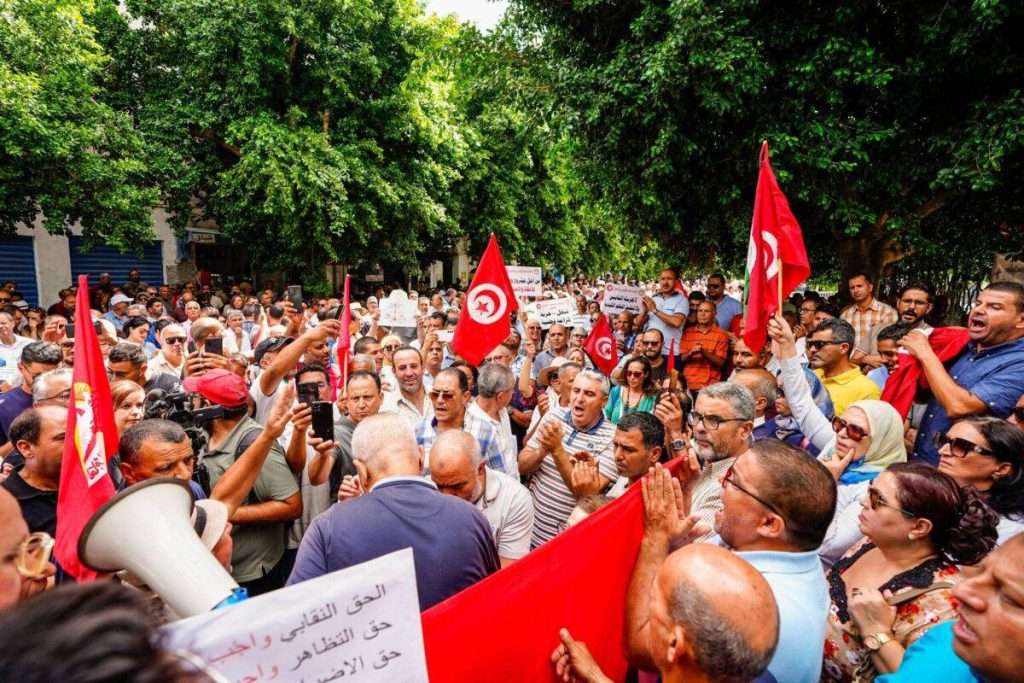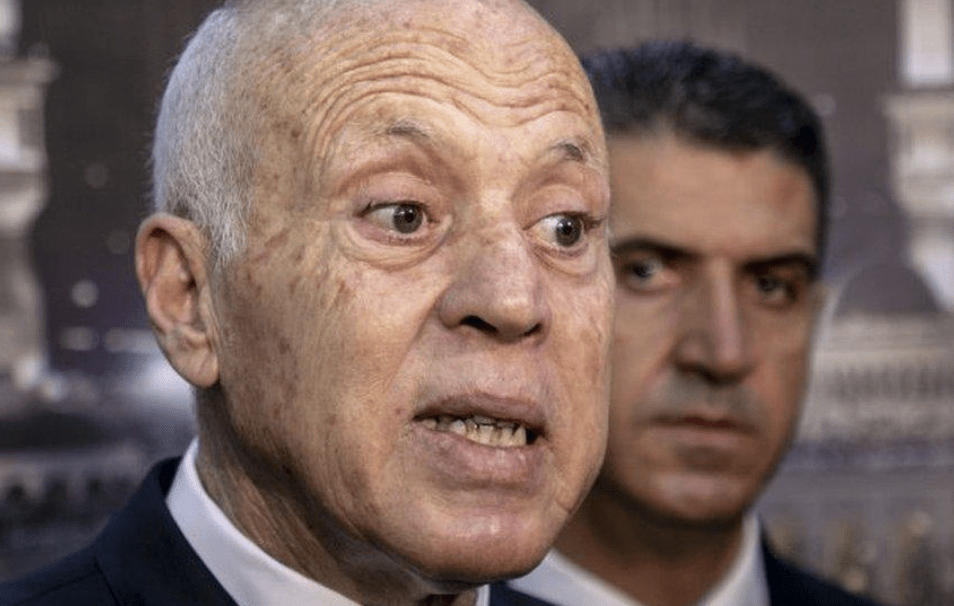Amnesty International condemns suppression of protest in Tunisia

An international rights group has turned up the heat on Tunisia’s president who has turned Tunisia, once a country of reform and advancement in the Arab world, into one of the most repressed countries in the region.
A report published by Amnesty International on June 17th denounces the suppression of protests in Tunisia, accusing the country’s President, Kaïs Saïed’s, of hypocrisy as he pledges to defend socioeconomic justice, whilst simultaneously repressing the right to protest.
Whether it be large-scale trade-union organised protests, or grassroots farmer’s sit-ins, all manner of peaceful protests and strikes in Tunisia are being met with arrests and detainments of up to 20 months.
Samar Shaiek, campaign coordinator and spokesperson for Amnesty, explains how “around 90 people have been the subject of legal action” simply for exercising their rights to freedom and peaceful assembly, to form and join a union, and organise and participate in strikes. She speaks of the “climate of fear” now growing around peaceful protests, and how mainstream media outlets are covering “fewer and fewer of these kinds of social protests”.
Aziz Chebbi, activist and member of the environmental group, Stop Pollution, states how “this repression is new”. He refers to the recent arrest of Mohamed Ali Trimi and two young people who, after two weeks of detention, await the appeal of their judgement on June 23rd.
These arrests and detentions have taken on an exemplary dimension for trade unionist, Anis Kâabi, who was detained for 14 months on “obstruction” charges in 2023. He saw his arrest as a message to the UGTT trade union, one of the largest in the country, that has been politically subjugated since President Kaïs Saïed’s constitutional coup on July 25, 2021 and subsequent paring of Tunisian democracy.
In the words of Sara Hashash, Deputy Regional Director for the Middle East and North Africa at Amnesty International, “Instead of using vague ‘obstruction’ charges to stifle or punish expressions of peaceful dissent […] Tunisia’s authorities should be working to safeguard and uphold the right to freedom of peaceful assembly in line with their international human rights obligations.” The ‘obstruction’ charges she refers to here are Article 107 of the Penal Code, “obstruction to a public service”, and Article 136 of the Penal Code, “obstruction to work”. Under international human rights law, states have an obligation to tolerate temporary obstruction caused by peaceful assembly and “the mere obstruction of movement or traffic cannot be equated with violence.”
A worker from a shoe factory in Kairouan who went on strike described how they were summoned by police in November 2024 and told to say they had been “manipulated into doing something illegal, or that we had other suspicious motives, but there was no basis to it. We were only asking for our rights and our dignity.”
Additionally, a peaceful sit-in of 400 farmers protesting for a right to water access in 2023 resulted in 4 arrests and detainments that were eventually reduced to fines. A further 40 people were summoned by police after the first sit-in.
Yet despite the repeated accounts of suppression, police intimidation and judicial action against protesters, they remain firmly in the public sphere, with the Tunisian Forum counting 2,639 protests in 2024, linked to various socioeconomic and environmental issues.
Amnesty International sent its conclusions and recommendations to the Tunisian authorities on June 5, but are yet to receive a response.
Amnesty International, Radio France Internationale, Maghrebi.org
Want to chase the pulse of North Africa?
Subscribe to receive our FREE weekly PDF magazine














